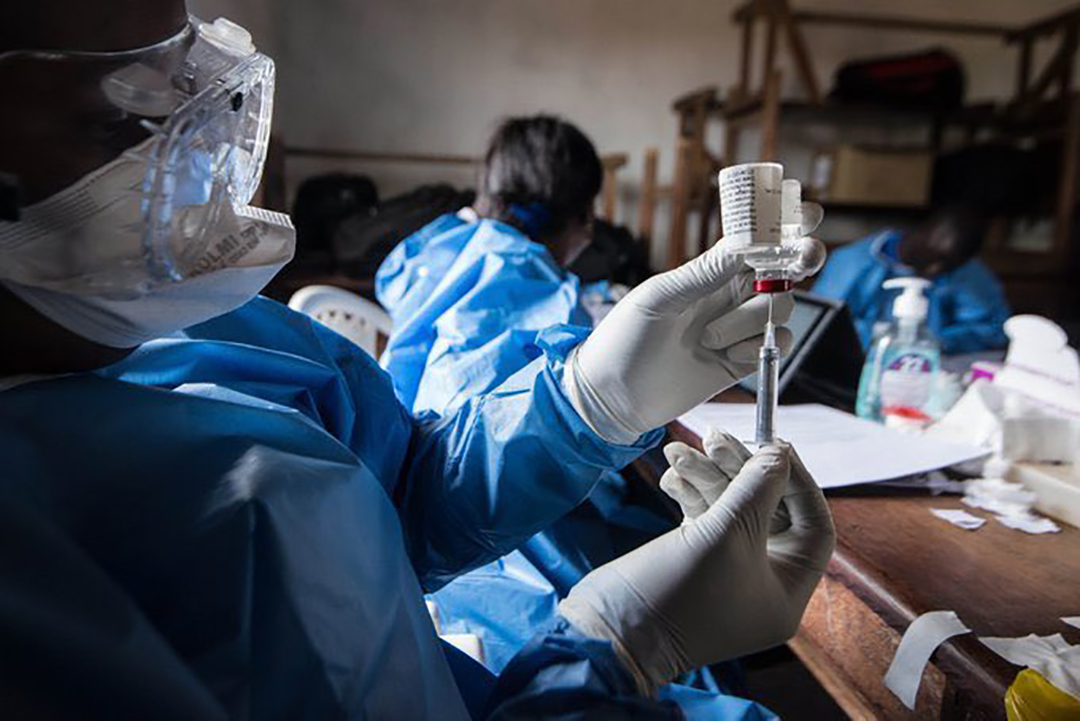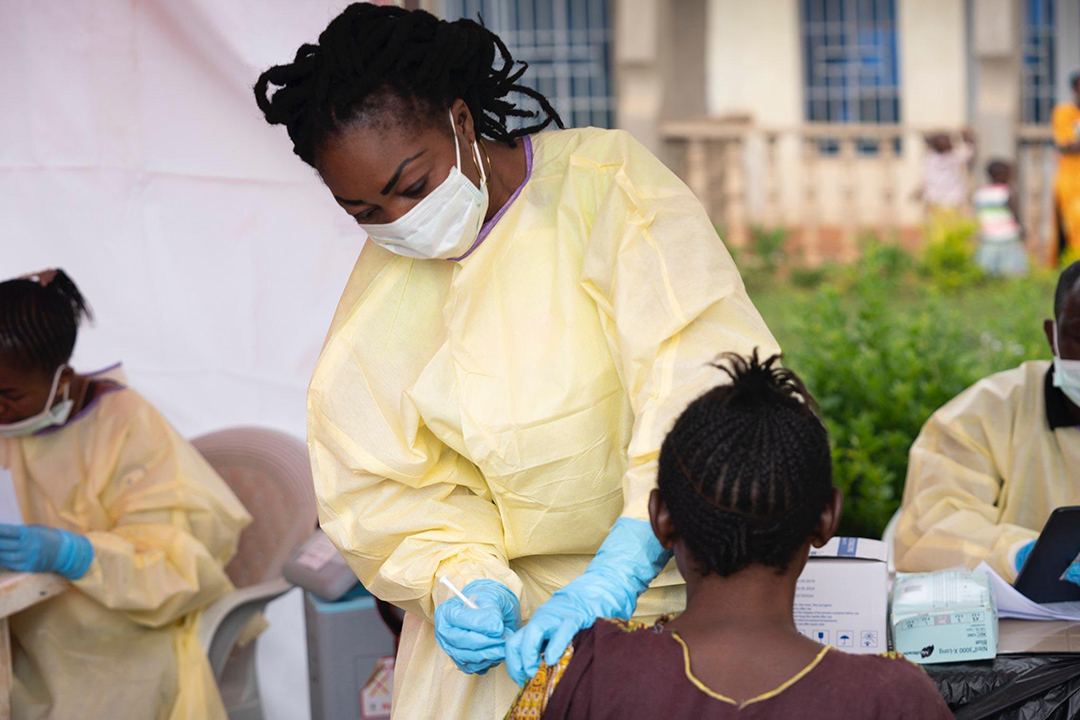In DRC, Ebola Survivors May Offer Clues to Stop Future Outbreaks
ADF STAFF
A rapid response by public health officials armed with vaccines appears to have contained the latest Ebola outbreak in the Democratic Republic of the Congo (DRC). But recent research into the cause of the outbreak has medical experts concerned about more and larger outbreaks in the future.
The Ebola outbreak began in the DRC’s North Kivu province in February. Teams from the Ministry of Health, World Health Organization (WHO), UNICEF and other groups responded quickly by tracing contacts and administering vaccinations designed to stop the virus from spreading.
By March 22, half of North Kivu’s dozen Ebola victims had died, and the last survivors had been released from treatment. With that, North Kivu began the waiting period needed to declare the latest outbreak officially over. That is expected to occur on May 3 if no other cases appear.
When the outbreak began, the WHO shipped more than 15,000 Ebola vaccine doses to North Kivu. Teams administered 1,500 shots in the first few weeks of the outbreak.
The vaccine was developed in response to the 2014-16 Ebola epidemic that killed 11,300 people in West Africa. It was first deployed against the 2018 Ebola outbreak in the DRC’s Equateur province. Since then, the vaccine has proved to be highly effective at protecting people from infection and disrupting epidemics.

According to Dr. Medard Onobaiso, head of UNICEF’s field office in Beni, DRC, the lessons from previous Ebola vaccination campaigns were vital to containing the most recent epidemic.
As they battled the latest Ebola outbreak, health officials relied on survivors of previous outbreaks to help their communities locate potential cases for treatment and contact tracing.
“The survivors are a great source of support. They are so important in helping us communicate with communities because people definitely listen to them,” Philippe Katembo, a worker with the WHO in the DRC, told the WHO’s Regional Office for Africa on Twitter.
However, recent research also raises concerns about the role survivors might play in future outbreaks — as the potential source of resurgences.
Researchers say a survivor of the 2014-16 West African outbreak may have been the source of an outbreak in Guinea that happened simultaneously with the North Kivu event. Genetic analysis of the Guinea virus showed it was virtually identical to the strain that caused the 2014-16 epidemic.
Researchers have known for some time that Ebola hides itself in survivors’ bodies, often in the gonads, eyes and spinal fluid where the immune system has trouble destroying it. Male survivors have been shown to pass the virus to sex partners many months after recovering from the infection.
Previous studies showed the virus hiding in survivors’ bodies for as long as 500 days. But the possibility of someone transmitting it after five years has surprised scientists.
Until recently, the most common sources of Ebola outbreaks were wildlife and the bodily fluids of victims. Researchers say the fact that survivors may serve as human reservoirs for the virus complicates the fight against it, since survivors potentially could set off new outbreaks.
Mike Ryan, head of the WHO’s Health Emergencies Program, warned that the new findings could further stigmatize Ebola survivors if their neighbors see them as potential sources of the virus.
Public health experts say anti-Ebola vaccination strategies need to shift from “pop-up” response to prevention across equatorial Africa. Two effective Ebola vaccines exist, but the process would require a large investment in vaccine production, ultracold storage and training for health workers to administer doses.
“We need to continue investing in research and development for Ebola, including on vaccines,” Dr. Ibrahima Soce Fall, the WHO’s assistant director-general for emergency response, told the United Kingdom’s The Telegraph. “In the future, we need to move to a more preventative measure. If we don’t it will have a catastrophic impact on global health.”


Comments are closed.